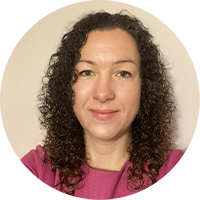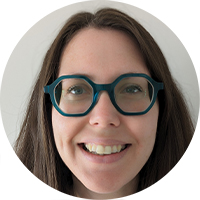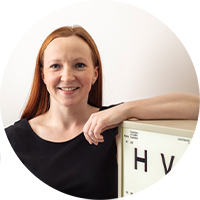Hospital Optometrists Committee election 2023: candidates’ statements
Six candidates are standing for election to the Hospital Optometrists Committee in 2023
The AOP’s Hospital Optometrists Committee (HOC) represents and supports the interests of optometrists employed in the hospital service. It pro-actively develops good practice and seeks to maintain high standards of post-graduate education within hospital optometry. The HOC also helps support communications between hospital optometrists and other professionals.
There are currently two seats available on the HOC. The term of office of electees runs from the Hospital and Specialty Optometrists Conference (HSOC) in 2023 until the HSOC in 2026.
Voting opens on 12pm Tuesday 31 October. Voting closes on 5pm Thursday 2 November. The results will be announced on Saturday 4 November.
To be eligible to vote, you must be both an:
- AOP Member
- Optometrist employee of an NHS Trust, Health Authority or Health Board
The election statements for the six eligible candidates are below.
Lucy Andrews, Arrowe Park Hospital
 “I have followed a traditional route as a hospital optometrist, starting with a pre-reg at the Queens Medical Centre in Nottingham in 2004. I continued to work there as a band 6 and band 7 optometrist until 2017. After a period of travel, I moved to the North West, taking a temporary position at Alder Hey Childrens Hospital and then to Warrington Hospital.
“I have followed a traditional route as a hospital optometrist, starting with a pre-reg at the Queens Medical Centre in Nottingham in 2004. I continued to work there as a band 6 and band 7 optometrist until 2017. After a period of travel, I moved to the North West, taking a temporary position at Alder Hey Childrens Hospital and then to Warrington Hospital.
Earlier this year I took on the role of Lead Optometrist at Arrowe Park Hospital on the Wirral. Having worked in a variety of hospital settings I have gained good insight into the positive aspects and pressures we all face.
For the last five years I have also worked for the College of Optometrists as a stage one and stage two assessor for the scheme for registration. This is a role I really enjoy as it allows me to stay up to date with changes in community optometry practice and the ever-changing road to qualifying as an optometrist.
Over my career the number of hospital pre-reg places has significantly reduced and the upcoming changes to the optometry degree programme may create more barriers for us. I feel it is essential we work with the College of Optometrists and educational bodies to continue to promote the role of hospital optometry as a career path so that core hospital optometry skills are not lost.
At the other end of the career ladder, it is important to promote career progression for hospital optometrists and recognise that many specialist optometrists are working more autonomously and seeing more complex patients than ever before. More work needs to be done to ensure this is reflected in our banding and create opportunities for advancement in our teams.
As an experienced and enthusiastic hospital optometrist I think I am an excellent candidate to be part of the Hospital Optometrists Committee.”
Michelle Corrin, Alder Hey Children's Hospital
 “I'm a dedicated hospital optometrist with 15 years of experience, deeply passionate about my work. I've always cherished the opportunity to work with patients and make a meaningful impact on their lives.
“I'm a dedicated hospital optometrist with 15 years of experience, deeply passionate about my work. I've always cherished the opportunity to work with patients and make a meaningful impact on their lives.
I hold the distinction of being an independent prescriber, possess a professional certificate in glaucoma, and serve as a clinical instructor at the University of Manchester. My experience spans core and extended roles in optometry, and I've also taken on management responsibilities.
I'm running to be actively engaged in the profession's growth and future. I believe it's essential to advance recognition for specialist clinical skills within hospital optometry.
I'm committed to fostering collaboration between hospital optometry and community services. This synergy is crucial for efficient operations and the seamless delivery of eye care.
During my career in hospital optometry, I've seen the positive impact we can make on patients' lives. With your support, I aim to take our profession to new heights, focusing on skill development, recognition, and the important bridge between hospital and community services. My experience in core and extended role optometry, coupled with management experience, positions me well to lead this effort.
Thank you for considering me for the Hospital Optometry Committee. Together, we can elevate our profession and provide even better care to our patients.”
Sharita Jhummun, Central Middlesex Hospital
 “The last two decades of my clinical experience have been within NHS ophthalmology departments in Ipswich and London. I am currently the Clinical Lead of the Orthoptic and Optometrists for the service at Central Middlesex Hospital. My current clinical role includes working in the corneal and macular clinic, I am one of the Intravitreal injectors and have my Independent Prescribing qualification and higher qualifications in medical retina and glaucoma.
“The last two decades of my clinical experience have been within NHS ophthalmology departments in Ipswich and London. I am currently the Clinical Lead of the Orthoptic and Optometrists for the service at Central Middlesex Hospital. My current clinical role includes working in the corneal and macular clinic, I am one of the Intravitreal injectors and have my Independent Prescribing qualification and higher qualifications in medical retina and glaucoma.
My leadership skills are dedicated to a team of 21 Allied Health Professionals, an Eye Clinic Liaison Officer and AHP admin support. My role is multifaceted encompassing clinical practice, teaching, governance, and project development. Simultaneously, I am diligently pursuing a part-time Master of Business Administration (MBA) in Healthcare Management at Brunel Business School through a full scholarship.
I have a strong track record of successful project management, having obtained approval for three significant business initiatives, all of which are currently in the implementation phase. Furthermore, I am actively contributing to the development of the first pathfinder ophthalmology diagnostic hub in the North West London sector, demonstrating my commitment to advancing healthcare services.
I would like to build on networking for hospital optometrists and form a link for communication to support others. Collaborating with each other will help to form a stronger bond and will enable us to unite more as a team.”
Jane Macnaughton, Leicester’s Royal Infirmary
 “We have an expanding optometric workforce entering the Hospital Eye Service, many of whom are part-time employees working within extended roles. Together with the opportunities of higher-level qualifications, optometrists are becoming a highly skilled group of professionals.
“We have an expanding optometric workforce entering the Hospital Eye Service, many of whom are part-time employees working within extended roles. Together with the opportunities of higher-level qualifications, optometrists are becoming a highly skilled group of professionals.
However, we must not forget the importance of our core services and must strive to maintain consistency of delivery across all clinics within which we are involved. Added to this, is the importance of establishing stronger pathways of communication with our primary care colleagues, so that incoming referrals are appropriate and timely. Education, training, and leadership are the key components with which this may be addressed, and most especially now, with the increased demand of an aging population.
I have remained within hospital optometry for the majority of my 30-year career, following a pre-registration year at Moorfields Eye Hospital. I am currently at Leicester’s Royal Infirmary where I have been for the past 15 years. In this role I am involved working in paediatric and low vision clinics.
Beyond the hospital, I have experience within education, governance, audit and research. I maintain current roles within academia (as a senior lecturer at Anglia Ruskin University), the College of Optometrists (as a long-serving Examiner and retired Council member) and the GOC (within the CET and CPD frameworks). In addition, I have maintained strong connections within the multidisciplinary framework of the sight loss sector due to my specialist interest of working with children and adults with vision impairment.
To the committee I feel I would bring my wide network of connections across the profession. In representing colleagues, I am keen to see a structured development of our roles across hospital services together with improved end to end patient care through well designed referral pathways. Overall, the core optometric services we provide, must continue to flourish thanks to our own unique, valuable skillsets.”
Claire Melvin, Aberdeen Royal Infirmary
 “I love my job. I have a huge passion for hospital optometry, particularly in the advancement and protection of specialist practitioners.
“I love my job. I have a huge passion for hospital optometry, particularly in the advancement and protection of specialist practitioners.
I started my hospital optometry journey in 2002 as Sunderland Eye Infirmary’s pre-reg under my supervisor Chris Steele, who I still consider to be my mentor today.
I am currently the deputy head optometrist in Aberdeen Royal Infirmary mainly working in extended roles in medical retina (AMD and diabetes), also working in the corneal ocular surface disease clinics and paediatric contact lenses. I represent hospital optometrists in Scotland within the National Eyehealth Scotland group and I continue to work with the College in IP question editing and writing.
I wish to retain my place in the Hospital Optometrists Committee as I feel I am contributing effectively to the group and I represent Scottish hospital optometrists and specialist optometrists well.
I value the multidisciplinary nature of hospital work. Given the specialist nature of many hospital optometry roles and the excellent education we receive from working closely alongside consultant ophthalmologists and peers, I feel strongly that we should create more opportunities to learn from each other and share experiences.
I suggested for this conference that we stream peer review into the areas optometrists work in: MR, glaucoma, anterior eye, paediatrics, low vision. This allows us to share experience and cases with those across the country, which is particularly useful for those working in small units.
Peer discussion is of such value and this hospital conference is the perfect platform. Could we replicate this model across local groups?
I like to push boundaries for what is possible in hospital optometry whilst ensuring the correct governance is in place. I remain interested in pursuing a change in IP legislation to enable IP optometrists to prescribe anti-VEGF treatments, as this remains a barrier to practice.
Please consider me to remain on the Hospital Optometrists Committee.”
Zahra Rasheed, Prince Charles Hospital
 “I have spent my entire career working in hospital optometry, in both large teaching hospital eye units as well as smaller district hospitals, and despite the challenges of NHS working, have maintained a deep commitment to the profession. I have a masters in Clinical Optometry, and Independent Prescribing and Higher Certificate qualifications. I have experience in all clinical subspecialties, with a particular emphasis on anterior segment disease and specialist contact lenses, and a keen focus on governance and service improvements.
“I have spent my entire career working in hospital optometry, in both large teaching hospital eye units as well as smaller district hospitals, and despite the challenges of NHS working, have maintained a deep commitment to the profession. I have a masters in Clinical Optometry, and Independent Prescribing and Higher Certificate qualifications. I have experience in all clinical subspecialties, with a particular emphasis on anterior segment disease and specialist contact lenses, and a keen focus on governance and service improvements.
I have championed hospital optometry across the wider profession in South Wales for many years. As a senior member of the first hospital optometry department in Wales (one of only two departments currently), I am passionate about increasing the size, scope and representation of our specialist workforce, across Wales.
This includes ensuring we are represented fairly when it comes to multidisciplinary strategy planning within hospital governance. The increase in role scope in other parallel professions in HES, and primary care contract reform, makes this a pivotal time for hospital optometry in Wales; I see a significant opportunity to elevate experienced hospital optometrists as cross-sector leaders in clinical excellence, exemplifying expert clinical practice and driving strategic service improvements and innovation. Building on verified best practice from elsewhere in the UK, in both clinical pathways and managerial/structural development, is key to achieve this.
Although the clinical roles of hospital optometrists in Wales have long been established, managerial and professional leadership roles, and even networking links, are still underdeveloped. This is particularly evident in the lack of career progression pathways in Wales, with no professional forum as yet. Joining this prestigious committee will provide me an opportunity to feed back the excellent work being carried out in hospital optometry elsewhere in the UK, to help cement us as a key part of the NHS workforce in Wales.”
